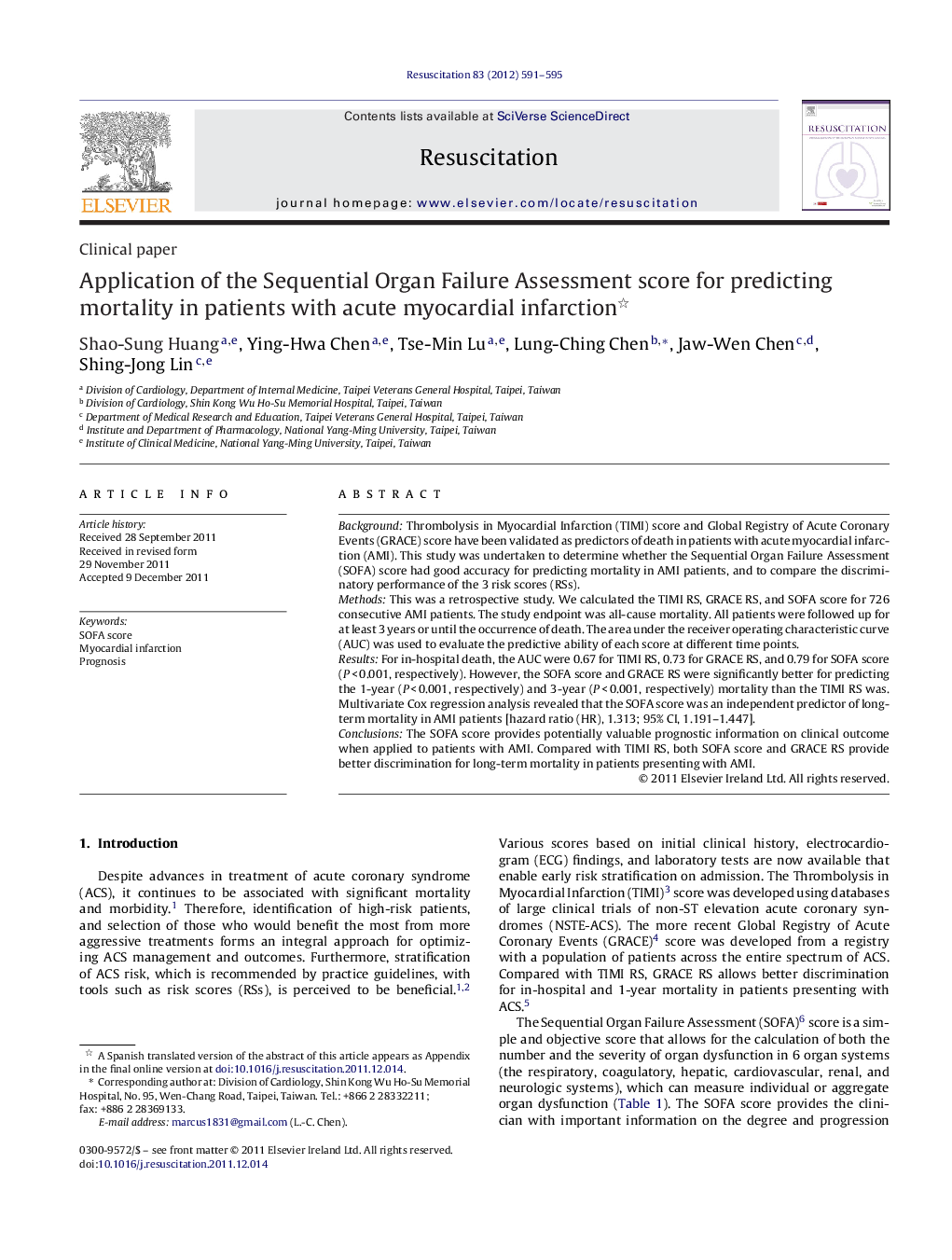| Article ID | Journal | Published Year | Pages | File Type |
|---|---|---|---|---|
| 5999115 | Resuscitation | 2012 | 5 Pages |
BackgroundThrombolysis in Myocardial Infarction (TIMI) score and Global Registry of Acute Coronary Events (GRACE) score have been validated as predictors of death in patients with acute myocardial infarction (AMI). This study was undertaken to determine whether the Sequential Organ Failure Assessment (SOFA) score had good accuracy for predicting mortality in AMI patients, and to compare the discriminatory performance of the 3 risk scores (RSs).MethodsThis was a retrospective study. We calculated the TIMI RS, GRACE RS, and SOFA score for 726 consecutive AMI patients. The study endpoint was all-cause mortality. All patients were followed up for at least 3 years or until the occurrence of death. The area under the receiver operating characteristic curve (AUC) was used to evaluate the predictive ability of each score at different time points.ResultsFor in-hospital death, the AUC were 0.67 for TIMI RS, 0.73 for GRACE RS, and 0.79 for SOFA score (PÂ <Â 0.001, respectively). However, the SOFA score and GRACE RS were significantly better for predicting the 1-year (PÂ <Â 0.001, respectively) and 3-year (PÂ <Â 0.001, respectively) mortality than the TIMI RS was. Multivariate Cox regression analysis revealed that the SOFA score was an independent predictor of long-term mortality in AMI patients [hazard ratio (HR), 1.313; 95% CI, 1.191-1.447].ConclusionsThe SOFA score provides potentially valuable prognostic information on clinical outcome when applied to patients with AMI. Compared with TIMI RS, both SOFA score and GRACE RS provide better discrimination for long-term mortality in patients presenting with AMI.
